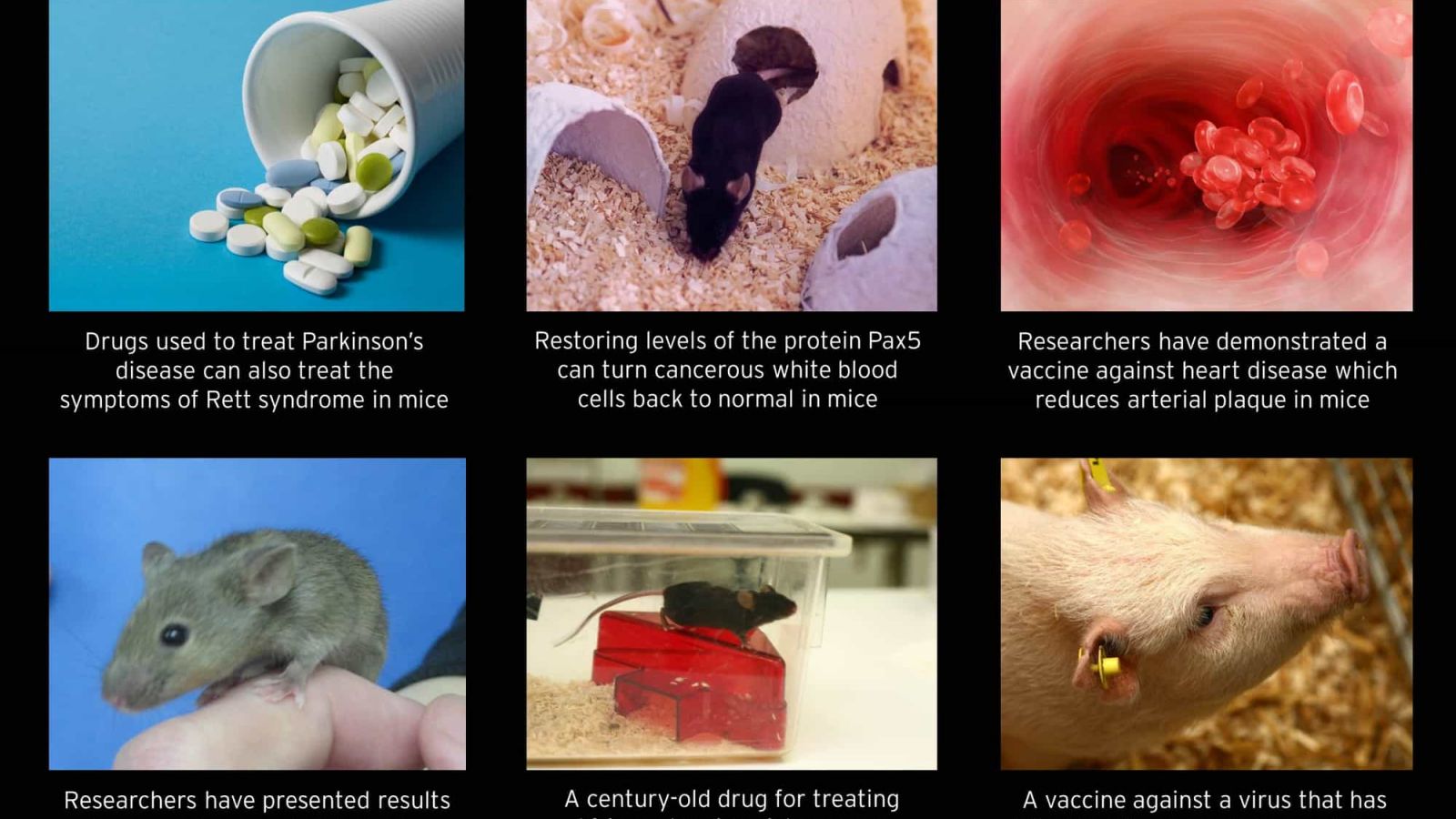A drug developed a century ago to treat African sleeping sickness has eliminated the symptoms of autism from adult mice with an experimental form of the disorder. Suramin blocks receptors in the nervous system that when overstimulated can lead to many of the impairments characteristic of autism, such as brain development and motor coordination. The mouse model for autism exhibits a number of autism-like symptoms, including being less social and not seeking novelty, and following treatment with suramin 6 week old mice these traits vanished, along with a number of other consequences of altered metabolism.
http://news.sciencemag.org/biology/2014/06/century-old-drug-reverses-signs-autism-mice
A common childhood leukaemia can be cured in mice by reactivating a tumour suppressor gene that is often damaged or only partially present in children with the disease. After having the gene, Pax5, deactivated the mice developed a common type of leukaemia. Reactivating Pax5 caused the cancerous cells to revert to their normal state. However Pax5 is just one of hundreds of genes that suppress tumours, and the researchers have highlighted that it would be difficult to switch these genes on and off in people medically.
http://www.theguardian.com/science/2014/jun/18/leukaemia-researchers-find-genetic-switch-to-repair-cancer-cells-in-mice
An antibody that indirectly prevents the immune system from attacking the insulin-producing beta cells has shown success in preventing type I diabetes in mice. The intervention has to be done at an early stage in the disease for it to be successful but this can be difficult outside of lab conditions. The antibody triggers a molecule known as TLR4, which in turn blocks the T-cells from attacking the beta cells. This is different to many previous approaches using antibodies, where the T-cells were directly targeted.
http://consumer.healthday.com/diabetes-information-10/diabetes-drug-news-179/scientists-reverse-type-1-diabetes-in-mice-688750.html
Researchers studying mice with the same mutation found in girls with Rett syndrome noticed that there were problems with the way the brain produced the neurotransmitter dopamine. This bore similarities to Parkinson's disease, which is also triggered by a lack of dopamine. The mice were then treated with L-Dopa and Dopa decarboxylase inhibitor, which were developed for treating Parkinson's disease and work to boost levels of dopamine in the brain. This treatment helped to reduce the symptoms of Rett syndrome, including tremors and respiratory difficulties.
http://www.sciencedaily.com/releases/2014/06/140616102815.htm
A vaccine against heart disease has been demonstrated in mice. The vaccinated mice had 40% less plaque in their arteries than the control group. The vaccine works by retraining the immune system to tolerate certain signals from the body, which reduces inflammation in the arteries. The researchers hope that this vaccine could reach clinical trials in as little as three years.
http://newswise.com/articles/la-jolla-institute-advances-research-toward-world-s-first-vaccine-for-heart-disease
An outbreak of porcine epidemic diarrhea virus in the US over the past year has caused the deaths of 8 million pigs. This has already reduced the number of pigs kept in the US by 10% and caused an increase in pork prices. A vaccine for the pigs has just received conditional approval and will be available for use with no restrictions.
http://www.bloomberg.com/news/2014-06-16/usda-issues-first-license-for-vaccine-to-fight-pig-killing-virus.html
Last edited: 10 March 2022 21:19




